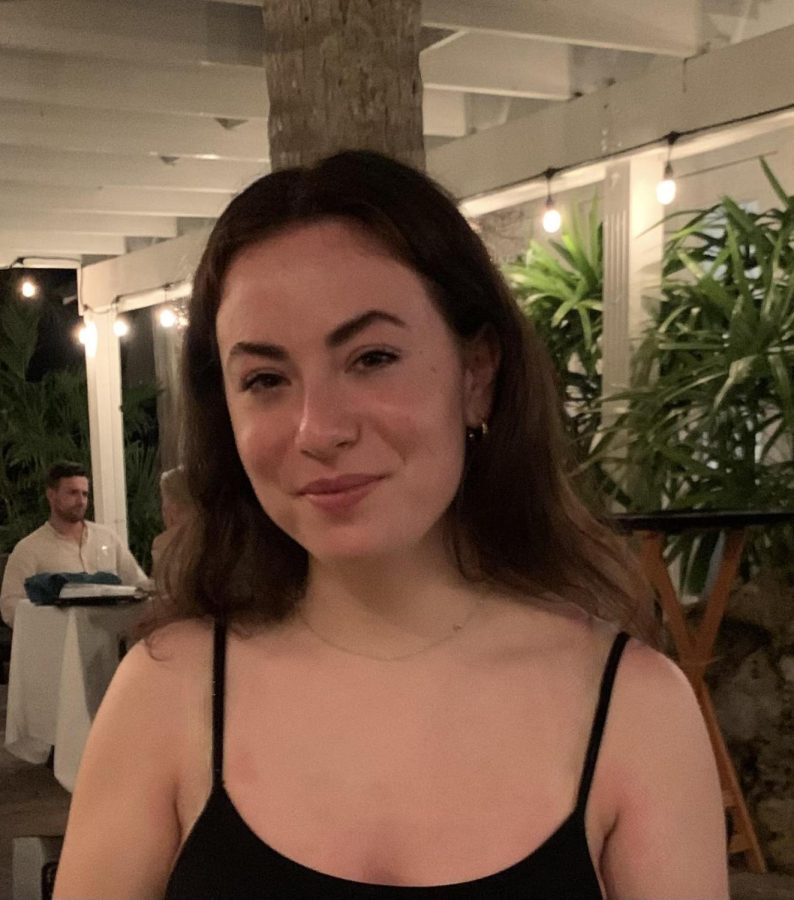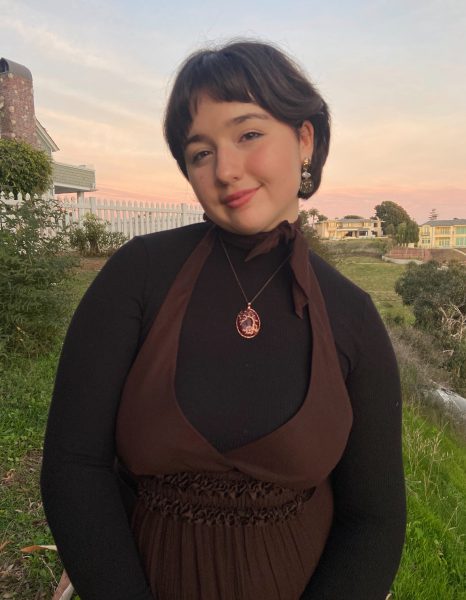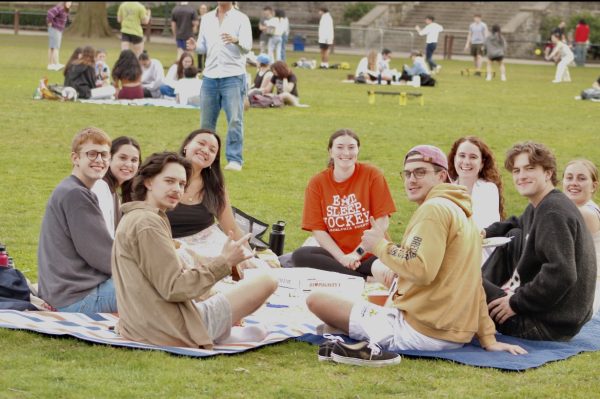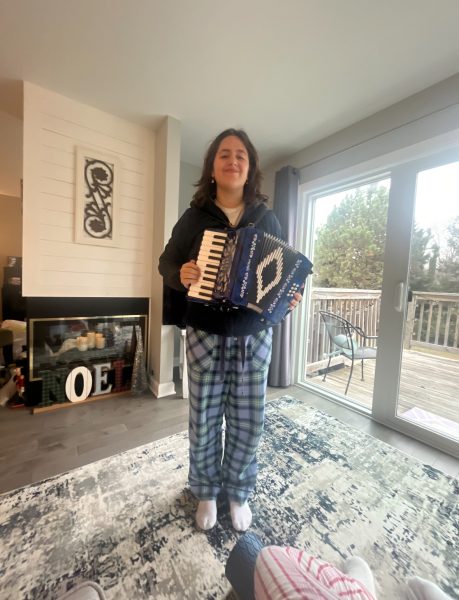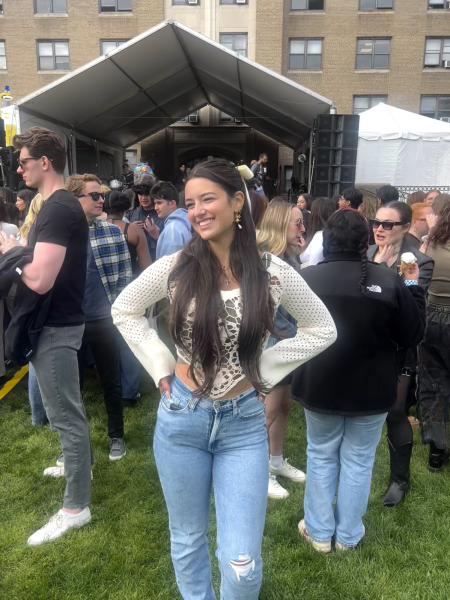Junior Shares Her Passion for Political Engagement
Claire’s passion for politics stem from personal and academic sources. (Courtesy of Claire Bickel/The Fordham Ram)
When I interviewed Claire Bickel, FCRH ’24, she was standing at the old, comically small stove in her Walsh apartment, stirring a pot of avgolemono soup with orzo. Throughout the past semester, she has dedicated almost every Sunday evening to the creation of a time-consuming, home-cooked meal. The kind of meal that’s rare for her throughout the week, when she, like most college students, whips up something canned or packaged, but fast. This week, however, she took extra care making a recipe beloved by her family as she prepared for the stresses of midterm week.
Bickel studies both political science and international political economy at Rose Hill, gearing her towards a career immersed in local, federal and international politics. She currently has an internship for Berger Hirschberg Strategies, a democratic strategies firm, where she helps to organize fundraising for candidates at the local and state level. This isn’t her first time working in the political sphere, however, as she also worked on her governor’s, Ned Lamont of Connecticut, reelection campaign.
“Fundraising focuses a lot more on money, but organizing is really, really about getting the vote out. It’s about going to events, calling people and doing canvases,” said Bickel. “Getting the issues heard and really having visibility with the candidates [is important]. Obviously, midterms don’t really get that many people out to vote, so it’s really important to do this work.”
While she has spent the past few months knee-deep in midterms, she realizes that’s not the experience many others have. “I care a lot about politics. For most of my life, it has been an incredibly important part of my family and the conversations that we have. But that is not the case for most people. It bursts your bubble in a way, when you realize that it is incredibly important for you but not to the same extent for everyone else,” said Bickel.
Her experience, however, has not been all doom and gloom, “There’s a lot more hope in politics than is seen in just the media, because obviously we get a lot of focus — if you’re not within politics, then you’re getting most of your views from the news and I think that, rightfully so, there’s a lot of bleak and terrifying prospects. But when you’re doing a campaign, you talk to people specifically, you talk to real people who are actually voting and it’s just not so stark the difference between the two [parties].”
Continuing on this thread, she described the story of one candidate that had inspired hope within her. While they had already won their primary, which, as Bickel explained, practically guaranteed their success, they continued investing all their energy into the race. “This person, despite the fact that someone from the outside is saying, ‘You’re good, you’ve won,’ is still really fighting for this spot and cares deeply about what they can do in the role,” said Bickel.
Bickel’s passion does not merely stem from the inclusion of politics within the home, but also from her struggle with Type I diabetes. While it has not deepened her love for politics — and actually made her consider pursuing a medical career — it has provided her a much deeper understanding of what’s truly at stake on the current political battleground.
“Especially if you are going to go into politics, it is important to have a stake in what you’re doing and fully understand the impacts that things have,” said Bickel. “The healthcare industry has obscene profits, and there are people who die every day because they’re trying to ration insulin. Even if you don’t eat all day, you still need a certain amount of insulin, which is going to wind up being more than they’re going to need to ration for. And insulin is obscenely expensive, even with insurance.”
Bickel then moved from the kitchen, grabbing a bowl full of the soup she had made and dropping onto the hard, blue couches that ornament her living room. She unclipped her monitor, which tracks the insulin levels within her bloodstream, pushed a few buttons and placed it onto the cushion beside her. Nearing the end of an interview that had focused so heavily on political engagement and the midterms, I kept thinking about the same question I had heard regurgitated in articles, news clips and all over social media: Do young people care about politics? Bickel is evidence that they do. And, as someone invested in politics, she believes that “people should always pay more attention.”
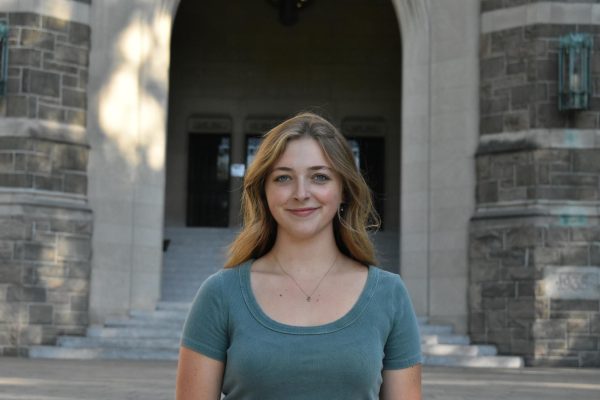
Kari White is a senior from the blink-and-you’ll-miss-it state of Delaware. She is majoring in English with a concentration in creative writing, as well...



































































































































































































